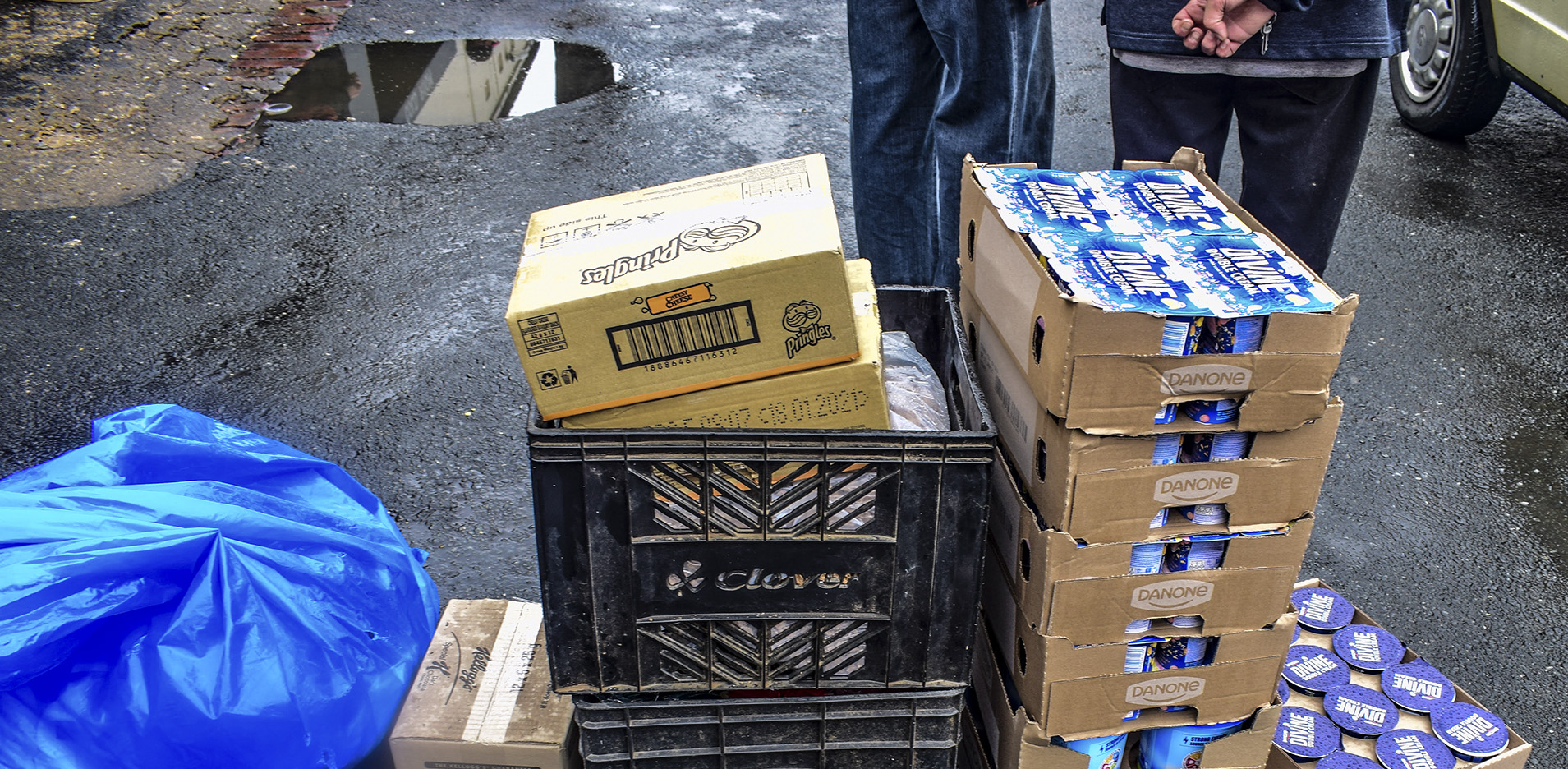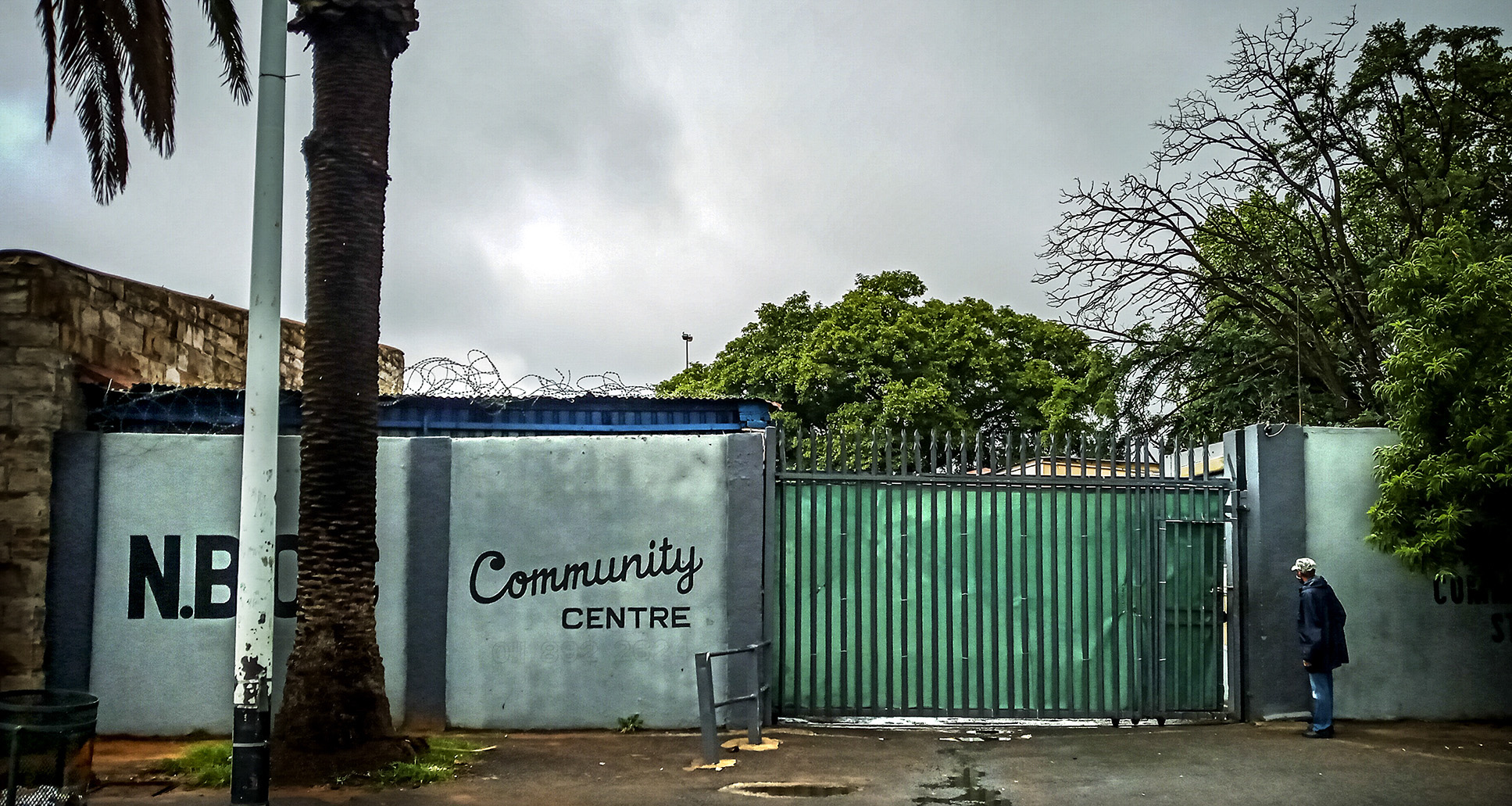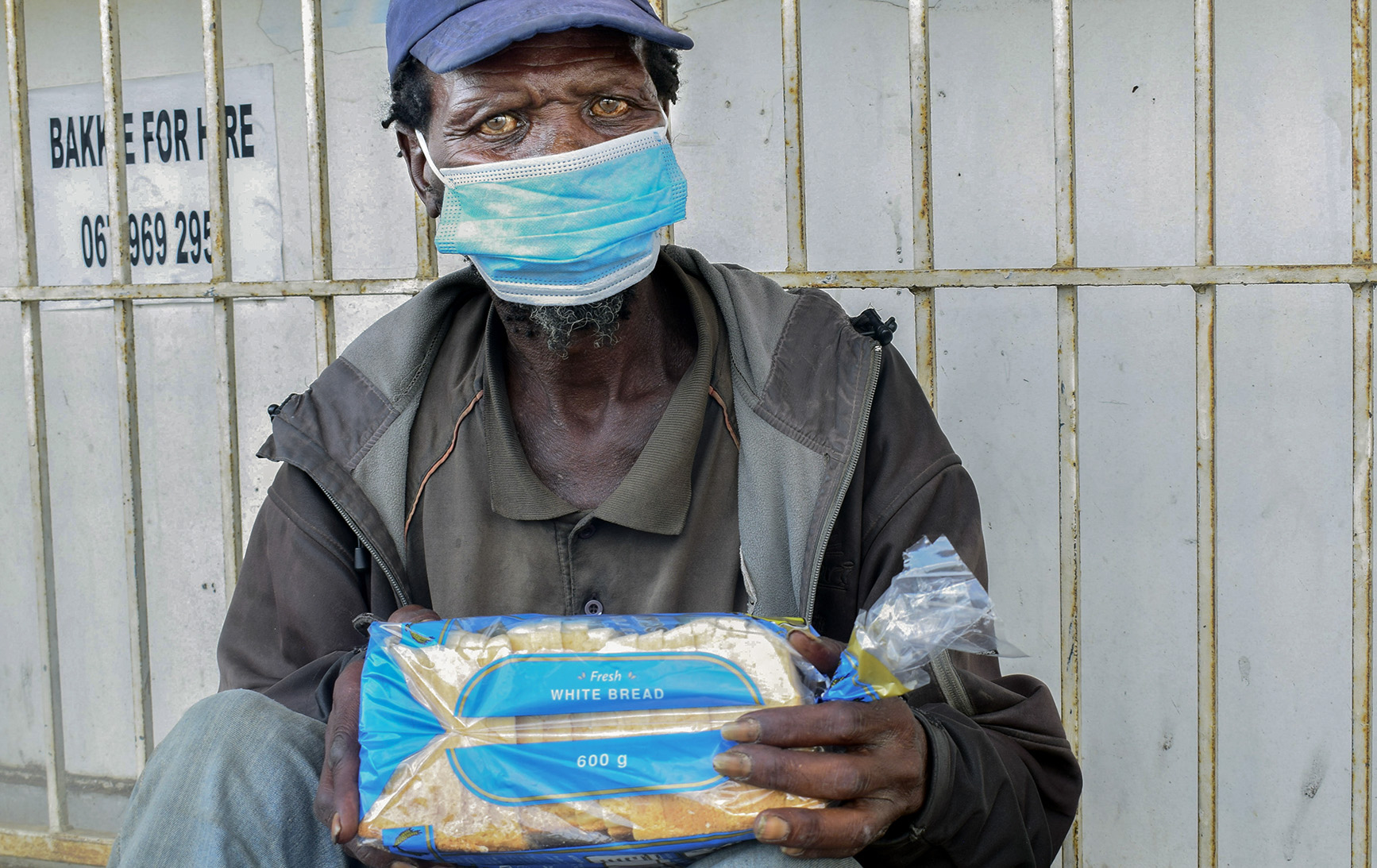Three square meals: It’s a luxury in South Africa. Many people can barely afford to eat once a day, with too many going to bed hungry.
For the desperately poor, even getting their daily bread is a challenge.
Most days, Sizwe (15)* and Dumisani (10)* can only afford a loaf of white bread to share. It costs R10 but they have to walk almost 5km from their home to the Germiston central business district, in the east of Johannesburg where they beg. This does not guarantee the siblings a meal, but they do this anyway because it is their best hope to eat.
Sizwe and Dumisani, from the Dukathole informal settlement in Germiston, have been forced to beg since 2015, when both their parents died.
“At first social workers would come to our home with food to sustain us every month but those visits have stopped so now we have to beg on the streets to at least get a single meal every day,” Sizwe explained.
 The bare minimum Malatsi and the children can afford from a successful donation day. (Photo by Michelle Banda)
The bare minimum Malatsi and the children can afford from a successful donation day. (Photo by Michelle Banda)
Hunger is also a fact of life for Michael Malatsi. The 66-year-old, who moved from Bethlehem in the Free State to Edenvale in Gauteng, looking for work. That was a long time ago. He found some work but lost his job and is now destitute. Living on the streets has deprived him of his dignity and charity is in short supply. The little he gets is portioned into handfuls of food to sustain him until his next donation.
“With the new Covid-19 regulations in place, getting a donation from passersby is a miracle. Often I go to bed hungry,” said Malatsi. The Covid regulations have seen fewer people in urban centres as many people work from home or do not use public transport.
Despite being one of the most food-secure countries in Africa, hunger in South Africa is rising, with causes ranging from population growth and poverty to inherent food injustices as stated in Stats SA’s 2020 South African National Poverty Line report. To meet the minimum required daily energy required to survive, a person living in South Africa needs to spend at least R585 a month. But hunger in the country has increased during the Covid-19 pandemic and subsequent lockdown, with 47% of interviewed adults unable to buy food in April, according to the second NIDS-CRAM report.
Eliminating food insecurity is not only a constitutional obligation but also a moral obligation for South Africa.
 New Beginnings Saturday Food parcel ingredients waiting to be loaded into a car and delivered to a community somewhere in Erkurhuleni. (Photo by Michelle Banda)
New Beginnings Saturday Food parcel ingredients waiting to be loaded into a car and delivered to a community somewhere in Erkurhuleni. (Photo by Michelle Banda)
Section 27(1)(b) of the Constitution gives everyone the right to access sufficient food and water but Section 28 (1)(c) goes even further, stipulating that children have the right to “basic nutrition, shelter, basic health care services, and social services”.
The reality on the ground though is bleak.
Where the state has failed to help the poor or reasonably lacks capacity, non-governmental organisations and individuals step in to assist the needy.
An organisation that offers hope – and meals – for the needy is the community-driven New Beginnings Foundation in Leeuwpoort Street in Boksburg, Ekurhuleni.
New Beginnings distributes food through churches and care centres in the metro. This Christian network has operated for the past 17 years. Its focus is on feeding as many mouths as possible every day.
 Members of the New Beginnings family load food parcels for the Saturday food parcel distribution. (Photo by Michelle Banda)
Members of the New Beginnings family load food parcels for the Saturday food parcel distribution. (Photo by Michelle Banda)
“The daily 10am feeding scheme covers at least 500 to 2,000 people, 99% of which are unemployed, homeless, and some from informal settlements," explained pastor Jean-Paul Goris, the chief operating officer of the New Beginnings Foundation.
The network coordinates the provision of food supplies for churches every Saturday. Its system monitors how many people are fed each Saturday and what is given to them. Goris said during the initial hard Covid-19 lockdown in March 2020, they fed more than 3,000 people a day. Police had to intervene to help with distribution while ensuring recipients maintain physical distance.
The Ekurhuleni Municipality relies heavily on New Beginnings’ food distribution as one of the first respondents in disaster relief.
“Unfortunately, now we know most of our regular faces and in some cases, we offer them employment so they can put food on the table. I mean, part of our programme entails employing people in the community (to help) someone positively,” added pastor Steve du Plessis, co-founder of the New Beginnings Care Centre.
 Outside the gate of hope (New Beginnings ) in Leeuwpoort Street in Boksburg, Ekurhuleni. (Photo by Michelle Banda)
Outside the gate of hope (New Beginnings ) in Leeuwpoort Street in Boksburg, Ekurhuleni. (Photo by Michelle Banda)
However, soup kitchens are not always accessible to the destitute such as Malatsi and the orphans, which is where the state must step in.
New Beginnings tries to feed as many people as possible, but the network cannot feed everyone: it is up against escalating hunger and desperation, exacerbated by the fallout of the pandemic. DM/MC
* Not their real names




 Outside the gate of hope (New Beginnings ) in Leeuwpoort Street in Boksburg, Ekurhuleni. (Photo by Michelle Banda)
Outside the gate of hope (New Beginnings ) in Leeuwpoort Street in Boksburg, Ekurhuleni. (Photo by Michelle Banda) 